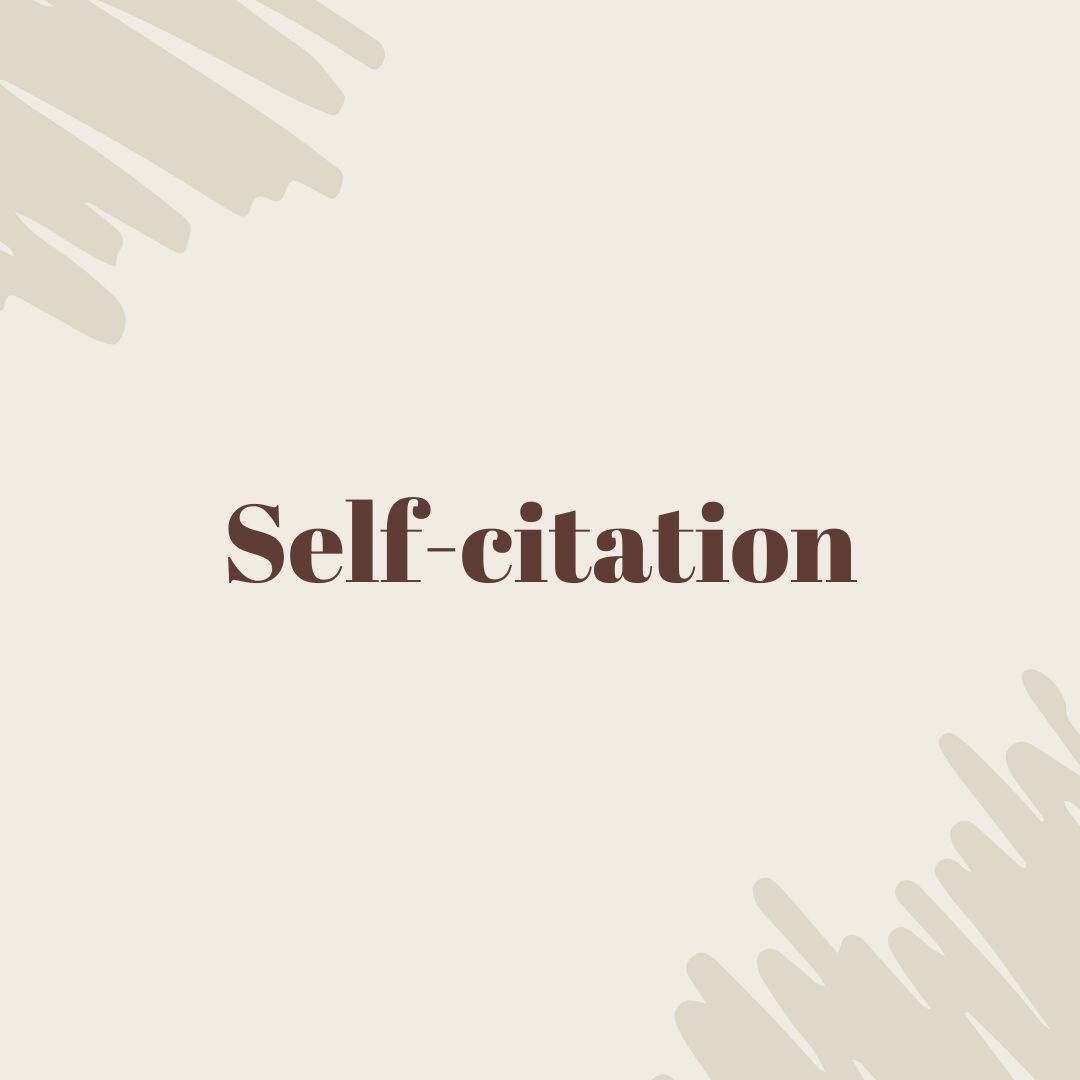Self-Citation: Ethical Considerations and Impact on Metrics


Ethical considerations surrounding self-citation revolve around the potential for bias and manipulation, which can negatively affect the research community. Excessive self-citation can artificially inflate citation counts, creating an impression of a higher impact than what is warranted. It can disadvantage other researchers, particularly early-career scholars, who may find it challenging to compete with established researchers who heavily self-cite their work.
Moreover, excessive self-citation can be seen as a form of self-promotion, raising concerns about the objectivity and credibility of the research. It creates a perception that the researcher is primarily interested in promoting their work rather than contributing to the broader scientific knowledge. That can lead to a closed loop of research, where scholars predominantly cite their work and fail to engage with the wider scholarly community. As a result, the advancement of knowledge may be hindered, and opportunities for collaboration and the exchange of ideas may be limited.
Self-citation undoubtedly impacts various research metrics, including the H-index, which measures a researcher's productivity and impact based on the number of citations their publications receive. While some level of self-citation is expected and necessary to establish context and continuity, excessive self-citation can artificially inflate H-index scores, creating a misleading impression of research impact.
That can have significant consequences, as H-index is often used as a factor in academic hiring, promotion, and funding decisions. Researchers with artificially inflated H-indices may gain an unfair advantage over colleagues who engage in responsible citation practices. Additionally, the reliance on the H-index as a primary metric can incentivize researchers to prioritize self-citation over engaging with the work of others, further hindering the progress of knowledge and collaboration.
It is crucial to adopt responsible self-citation practices to address ethical concerns and mitigate the negative impact of self-citation on research metrics. Here are some main principles to follow:
Only cite your work when it directly contributes to the argument or provides essential background information. Avoid citing your work to boost your citation count.
When citing your work, clearly indicate that it is a self-citation. It allows readers to assess the relevance of the citation and avoid any potential bias.
Make a conscious effort to cite the work of other researchers in your field, even if it means sacrificing some self-citations. That demonstrates engagement with the broader scholarly community and promotes the exchange of ideas.
Ultimately, the best way to increase your impact and reputation is to produce high-quality research that is widely recognized and cited by others. It will naturally lead to a higher H-index without resorting to excessive self-citation.
Citation Booster Service

Are you looking to enhance the impact of your research and boost your citation count? Look no further than SITA Academy! We offer specialized citation booster services designed to help researchers like you maximize the visibility and influence of your work. Contact us today to learn more and start boosting your citations.
If you have any questions, inquiries, or would like to learn more about our services, please don't hesitate to reach out to us. Our dedicated team is ready to assist you.